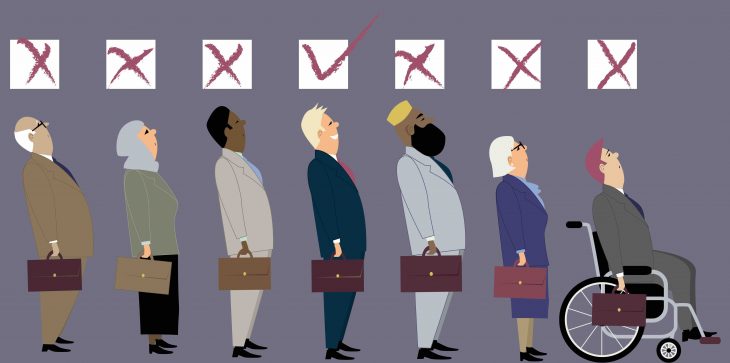
Discrimination is a complex social issue that persists in various forms across the globe. It undermines equality, diversity, and inclusion, affecting individuals and communities in profound ways. In this article, we will delve into 20 discrimination facts, shedding light on its prevalence, impact, and importance of fostering a more inclusive society.
Gender Discrimination
Gender discrimination affects both men and women, perpetuating stereotypes and limiting opportunities. Women, in particular, often face unequal pay, limited career progression, and gender-based violence.
Ageism
Ageism refers to discrimination and prejudice based on a person’s age, typically affecting older individuals. It can result in limited job prospects, unequal treatment in healthcare, and social marginalization.
LGBTQ+ Discrimination
Members of the LGBTQ+ community often face discrimination, including denial of rights, unequal treatment, and prejudice. Efforts to promote equality and acceptance are crucial in creating a more inclusive society.
Disability Discrimination
Discrimination against individuals with disabilities manifests in various forms, including inaccessible environments, limited employment opportunities, and social exclusion. It is essential to build inclusive spaces and ensure equal rights for all.
Discrimination Based on Race and Ethnicity

Racial and ethnic discrimination remains a significant challenge worldwide. People of color often face prejudice, bias, and systemic inequalities in areas such as education, employment, and criminal justice.
Intersectionality
Intersectionality recognizes that individuals can experience discrimination based on multiple aspects of their identity. It highlights the need to address overlapping forms of discrimination to create more inclusive environments.
Employment Discrimination
Discrimination in the workplace can occur during hiring, promotion, and daily interactions. It can be based on various factors, including race, gender, age, disability, and sexual orientation.
Educational Discrimination
Education should be a fundamental right for all, yet discrimination can hinder access to and quality of education. Marginalized groups often face disparities in resources, opportunities, and treatment within educational systems.
Housing Discrimination
Discrimination in housing denies individuals equal access to housing based on factors such as race, ethnicity, disability, or familial status. It perpetuates residential segregation and socioeconomic inequalities.
Language Discrimination
Language discrimination targets individuals based on their language proficiency or accent. It can limit employment opportunities, social integration, and access to services.
Discrimination in Healthcare
Discrimination in healthcare can lead to unequal treatment, inadequate access to care, and disparities in health outcomes. It is important to promote culturally sensitive and inclusive healthcare practices.
Impact on Mental Health
Discrimination can have severe impacts on mental health, leading to increased stress, anxiety, depression, and reduced self-esteem. Addressing discrimination is crucial for promoting overall well-being.
Legal Protections Against Discrimination
Many countries have enacted laws and regulations to protect individuals from discrimination. However, enforcement and awareness of these protections can vary, highlighting the ongoing need for advocacy and education.
Implicit Bias

Implicit bias refers to unconscious attitudes or stereotypes that influence our perceptions and behaviors. Recognizing and challenging these biases is crucial for combating discrimination.
Cyber Discrimination
The rise of the digital age has brought new forms of discrimination, such as cyberbullying, online hate speech, and digital harassment. Ensuring online spaces are safe and inclusive is paramount.
Promoting Inclusion and Equality
Fostering inclusion and equality requires collective effort. It involves promoting diversity, challenging discriminatory practices, and advocating for policies that uphold equal rights and opportunities for all.
Conclusion
Discrimination persists as a significant social issue, affecting individuals and communities worldwide. By understanding the prevalence and impact of discrimination, we can work towards creating a more inclusive and equitable society. Let us strive to challenge biases, promote diversity, and stand against all forms of discrimination to build a better future for everyone.
Frequently Asked Questions (FAQs)
How can I combat discrimination in my daily life?
You can combat discrimination by challenging your own biases, educating yourself and others, promoting inclusivity, and supporting organizations that work towards equality.
What can employers do to address discrimination in the workplace?
Employers can implement inclusive hiring practices, provide diversity training, establish anti-discrimination policies, and foster a culture of respect and equality.
How does discrimination affect marginalized communities?
Discrimination disproportionately impacts marginalized communities, exacerbating existing inequalities and limiting opportunities for social and economic advancement.
Are there international organizations working to combat discrimination?
Yes, organizations like the United Nations and Amnesty International work globally to address discrimination, advocate for human rights, and promote equality.
How can I support individuals who have experienced discrimination?
You can offer support by listening to their experiences, validating their feelings, and standing up against discriminatory behaviors. It’s important to create a safe and empathetic space for them to share their stories.
Was this page helpful?
Our commitment to delivering trustworthy and engaging content is at the heart of what we do. Each fact on our site is contributed by real users like you, bringing a wealth of diverse insights and information. To ensure the highest standards of accuracy and reliability, our dedicated editors meticulously review each submission. This process guarantees that the facts we share are not only fascinating but also credible. Trust in our commitment to quality and authenticity as you explore and learn with us.
